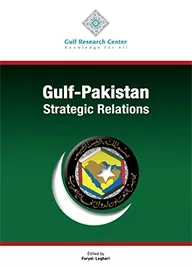Faryal Leghari
Doctor of Philosophy (DPhil) in Geography and the Environment - Degree completed in 2024
Supervisor: Dr Ariell Ahearn
Doctor of Philosophy (DPhil) in Geography and the Environment - Degree completed in 2024
Supervisor: Dr Ariell Ahearn
Narratives of Violence and Resistance in Waziristan: Examining the Mahsud- State Engagement in Post-Colonial Pakistan
Academic Profile
Faryal Leghari started her DPhil in Geography and Environment in October 2019. She completed her MPhil in Modern South Asian Studies in 2017 following a postgraduate diploma in Diplomatic Studies in 2015 from Oxford. Faryal’s MPhil dissertation looked at the resurgence of Sufi Islam and the disparity in Sufi practices in two ethno-linguistic regions in modern Pakistan. She wrote her postgraduate diploma dissertation on the viability of deradicalisation as part of a comprehensive counter-terrorism strategy, focusing her case study on a special child and delinquent deradicalisation initiative in practice in Swat, in Northwestern Pakistan.
Faryal holds a Masters in International Conflict Analysis from the University of Kent at Canterbury with her dissertation aimed at determining the role of Islam in the Chechen conflict. She also holds an MA in English Literature and Language from Kinnaird College, Punjab University, Pakistan.
Faryal’s past career stints include working as a researcher and security analyst. She has worked in politics, counter-terrorism, strategic security (including strategic resource security and maritime threats in the Persian Gulf) and soft security issues in South West Asia, the Middle East and the GCC states.
Faryal also worked as a deputy opinion editor in two English language newspapers in the United Arab Emirates and covered several regional and international political and security issues. She has been working as a freelance risk analyst and consultant and continues to write opeds for varied newspapers periodically.
Faryal has also been studying deradicalisation and the impact of intra-state conflict, displacement and development on ethnic-tribal societies in remote environments in northwestern Pakistan.
Current Research
Research Title: Could displacement have brought about a pronounced role for women refugees from patriarchal pastoral communities in a geopolitically strategic region? A study of women refugees in South Waziristan in Northwestern Pakistan post-conflict
This research aims to study the impact of displacement on pastoral communities, especially women. The displacement primarily took place amongst a Pashtun population in South Waziristan in Pakistan. Given the dominant role of a patriarchal conservative culture in Pashtun pastoral communities it is believed that an attempt to understand the roles women are assigned and those they might assume in conflict and displacement would offer an alternative perspective on gender and communities. By engaging directly with subjects impacted by the shift of conflict, displacement, and resettlement it is hoped that one might gain some sense of the tenuous tug of socio-cultural and economic dynamics in remote societies.
South Waziristan is a geo-strategically important part of the hinterlands in northwest Pakistan. Its proximity to Afghanistan while sharing a porous border makes it particularly vulnerable to cross border movement. An in-depth study of the role of women in these communities would help bring greater understanding of the way these isolated communities function and how women refugees in particular have adjusted to conflict and displacement. It would also bring a wider perspective on the geopolitical dynamics impacting lives of ethnic communities in conflict areas. The study aims to understand a complex political-ethnic environment and the morphing of spatial, economic, cultural and social demarcations between state and non-state actors, rural societies and urbanisation, resource allocation and exploitation. The issue of identity, in particular in highly stratified and gendered ethnic communities is a significant pivot on which this research intends to develop its scope in studying the political geography of this region.
Selected Publications

(Authored two chapters on counterterrorism and soft security).
Journal Articles
- Leghari, F. (2009) Pakistan-Gulf Ties: The Strategic Aspects of a Critical Relationship. Orient. Deutsche Orient Institute.
- Leghari, F. (2008) Dealing with FATA Strategic Shortfalls and Recommendations. Perspectives on Terrorism, 2(10): 17-26. Terrorism Research Initiative.
- Leghari, F. (2006) The Arab Connection to the Chechen Conflict. Yale Global Online.
Papers
- Co-authored a paper on ‘Need for Gulf Maritime Cooperation’ for Stimson Center: “Toward a Comprehensive Maritime Security Arrangement” while working at the Gulf Research Centre.
- Wrote a proposal for the Policy Planning Office of the German Foreign Office for development projects in Pakistan - this included a security assessment.
Journalist Publications
- Published several articles and opeds on strategic, political issues in regional newspapers including Gulf News, Khaleej Times, Arab News, Daily Star, The Peninsula, Bahrain Tribune, Ashraq al Aswat, Al Khaleej. In addition, Faryal has also been published in The Express Tribune and The News International in Pakistan.
- While working at Gulf News, Faryal initiated and undertook a special assignment in Pakistan’s Federally Administered Tribal Areas [FATA] in 2013. Published news reports, interviews, analyses and video documentaries are available online at Gulf News.
Participation in Conferences/Talks
- Faryal was invited to give a talk and present a paper on implications of US Policy for Pakistan and the Afghan security doctrine at the China Institute for Contemporary International Relations, CICIR in Beijing in June 2010.
- She participated in the Berlin Round Table Conference on developing a joint EU-GCC fund for Northwestern border areas of Pakistan (FATA) in May 2008, organised by the World Security Network.
- Coordinated and held the first workshop in Pakistan focusing on Pakistan-Gulf Strategic relations, between a Gulf-based think tank (the Gulf Research Center) and the Institute of Strategic Studies Islamabad (IISS) in Islamabad, Pakistan in March 2007.
Interviews
- Faryal was interviewed as an expert by Al-Arabiya TV on Chechen female suicide bombers for a special programme aired in 2007.
- She was also interviewed on religious extremism and the rise of radicalisation in Pakistan in an interview by WSN TV Network and the Radio Berlin Urdu Service in 2008.
As a journalist Faryal has interviewed several key figures including the following:
- Pakistan Prime Minister Imran Khan (in his previous role as an opposition politician and head of Pakistan Tehrik-e-Insaf party)
- Former President of Pakistan, (General) Pervez Musharraf
- Former ISAF Commander in Afghanistan, General John Allen
- Former Nato Senior Civilian Representative to Afghanistan, Sir Simon Gass
- Former French Prime Minister, Dominique de Villepin
- Pakistan’s Inter Services Public Relation (ISPR) former Director General, Major General Asim Bajwa and ex-DG ISPR Major General Athar Abbas
- Pakistan’s former Special Advisor on Foreign Affairs, Mr Sartaj Aziz
- Pakistan’s former Interior Minister, Chaudhry Nisar Ahmad Khan
- Pakistani activist Mukhtaran Mai
- Former Afghan Ambassador to the UAE, Mr Farid Zikria
- Mr Sun Weidong and Mr Chang Hua, Counsellors, Middle East, West Asian and North African Department in China’s Ministry of Foreign Affairs in Beijing in June 2010.
Faryal has also interviewed several militants as part of her journalist assignments, including a Pakistan Taliban spokesperson and others who had renounced their links to extremist groups and were undergoing deradicalisation.





